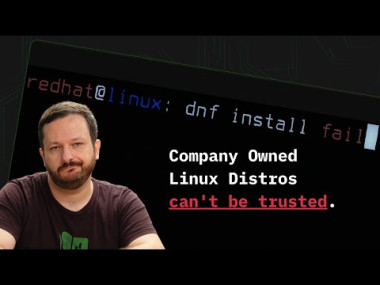Why Corporate Owned Linux Distributions are a Bad Idea ( youtu.be )
When it comes to Linux Distros, each are either managed by their community or by a company. With recent news, it becomes clearer than ever that those managed...

When it comes to Linux Distros, each are either managed by their community or by a company. With recent news, it becomes clearer than ever that those managed...
